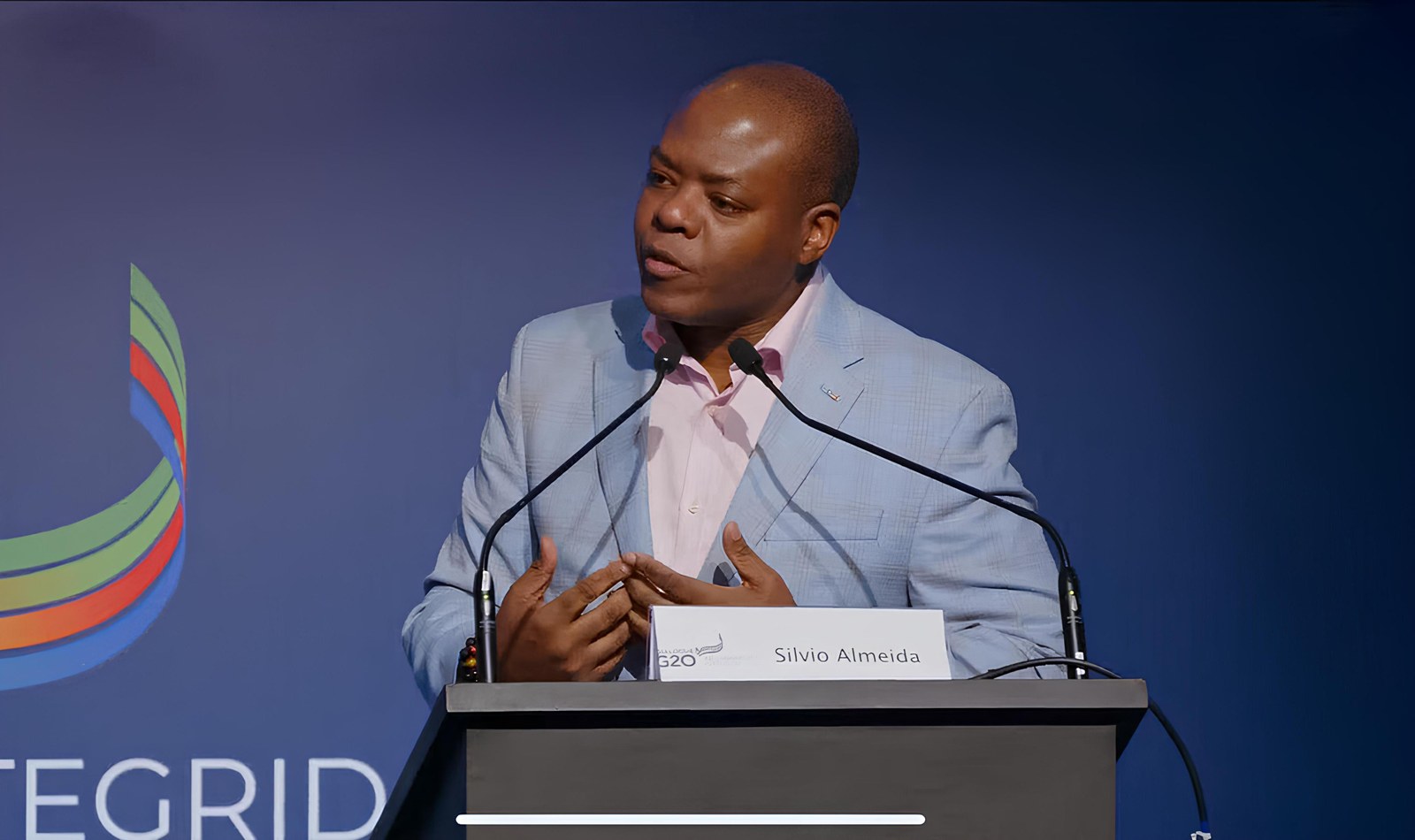Brasil’s Human Rights Minister urges swift regulation of digital platforms
Silvio Almeida cautioned against the chaos arising from uncontrolled online activity, stressing the imperative of measures to combat misinformation and hatred to protect our democratic future.

This Wednesday (May 1) marked the last day of the side event organized by the G20’s Digital Economy Working Group. One of the panels shed light on an issue at the center of the agenda at the Paulista capital: information integrity. Moderated by Roberta Eugênio, executive secretary at Brasil’s Ministry of Racial Equality, the debate brought together voices from different parts of the world, with Minister Silvio Almeida from the Brazilian Ministry of Human Rights and Citizenship standing out, as his words echoed with strength and determination.
In his impassioned speech, Silvio Almeida emphasized the urgency of regulating digital platforms, underscoring the intrinsic connection between freedom and responsibility. "There is no freedom without responsibility," he stated, pointing to the need for institutional mediation to ensure true sovereignty and democracy. His words echoed as a call to action to protect the integrity of information and combat online hate speech.
Minister Almeida provided historical context to his argument, stressing that while hatred and violence are age-old, their manifestations evolve over time. He highlighted the current era's alarming levels of misinformation and polarization, attributing much of the concern to the conduct of social media firms. Almeida emphasized the necessity for institutional mediation, blending responsibility, democracy, and institutional oversight to safeguard freedom and sovereignty. He cautioned against the absence of regulation on these platforms, warning that it fosters chaos and provides a breeding ground for extremists and criminals. "If we fail to act now to earnestly address misinformation, we risk ceding the future to those we oppose. We must grasp the importance of accountability to avert a grim tomorrow. History is within our grasp, and silence is not an option," he concluded.
Another highlight of the panel was Kristina Wilfore, founder of She Persisted from the United States, who presented the issue of attacks against women in the digital sphere. Wilfore argued that freedom of expression is differentiated for women, who often face discrimination and attacks on their credibility. She emphasized the need for regulation to address these issues and ensure a safe and inclusive online environment for all voices.
Yunfeng Li, Deputy Director-General of China's Internet Governance Office, highlighted the challenges faced by the international community in combating the spread of harmful and illegal online content. He emphasized the importance of digital platforms' primary responsibility in regulating and combating misinformation.
Nell McCarthy, Meta's Vice President of Content Policy Development, addressed the complexity of hate speech on platforms, emphasizing the need to strike a balance between freedom of expression and safety. She highlighted the company's efforts to foster a safer and more transparent online environment but acknowledged the significant challenges involved.
Wijayanto, a professor at Universitas Diponegoro in Indonesia, underscored the importance of strengthening regulations to combat political misinformation and attacks on democracies worldwide. He emphasized the need to hold social media platforms accountable for their content and improve the quality of algorithms to mitigate illicit activities.
Lastly, Anita Gurumurthy, Executive Director of IT for Change in India, highlighted the systemic nature of online violence against women and the need to address this issue holistically. She emphasized the importance of tackling impunity and strengthening compliance processes to safeguard the integrity of information and women's rights online.
The G20 side event provided a crucial conversation to address urgent challenges related to information integrity and online hate speech. Participants issued a global call to action to promote digital platform accountability, protect women's rights, and strengthen online democracy. Within the G20 themes, the discussion underscores the importance of collaborative and regulatory approaches to ensure a safer, more inclusive, and democratic online environment for all.